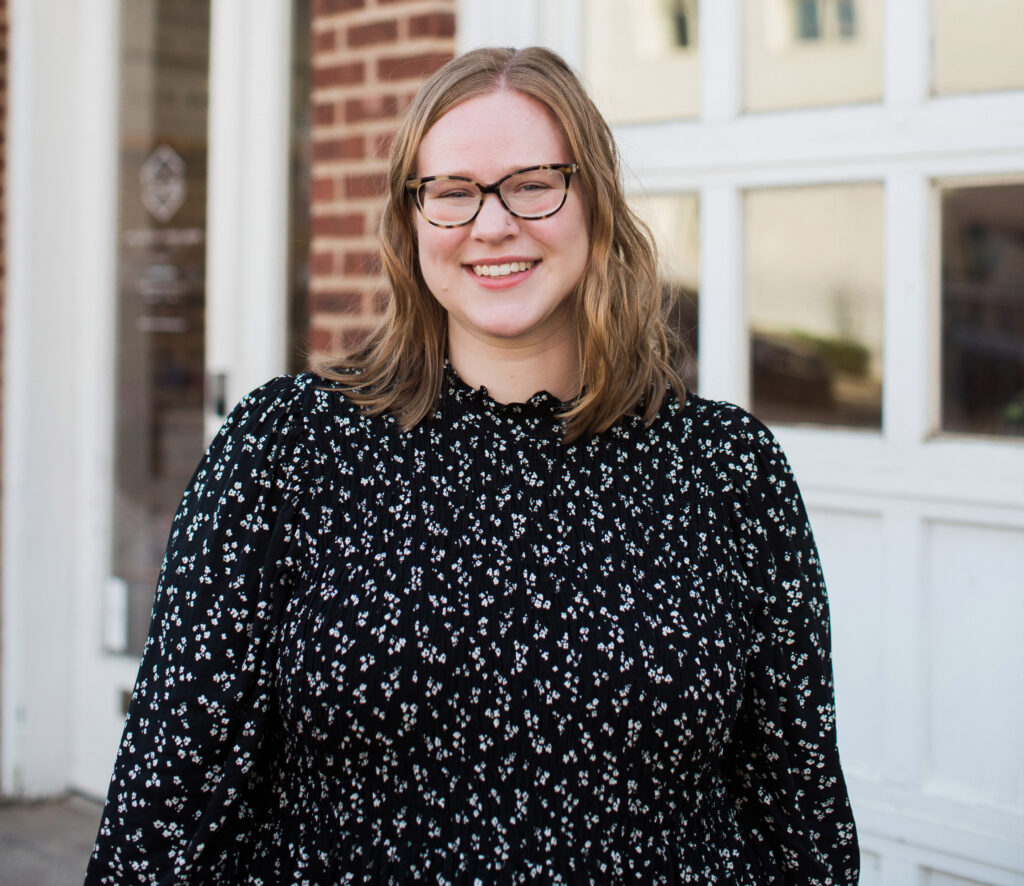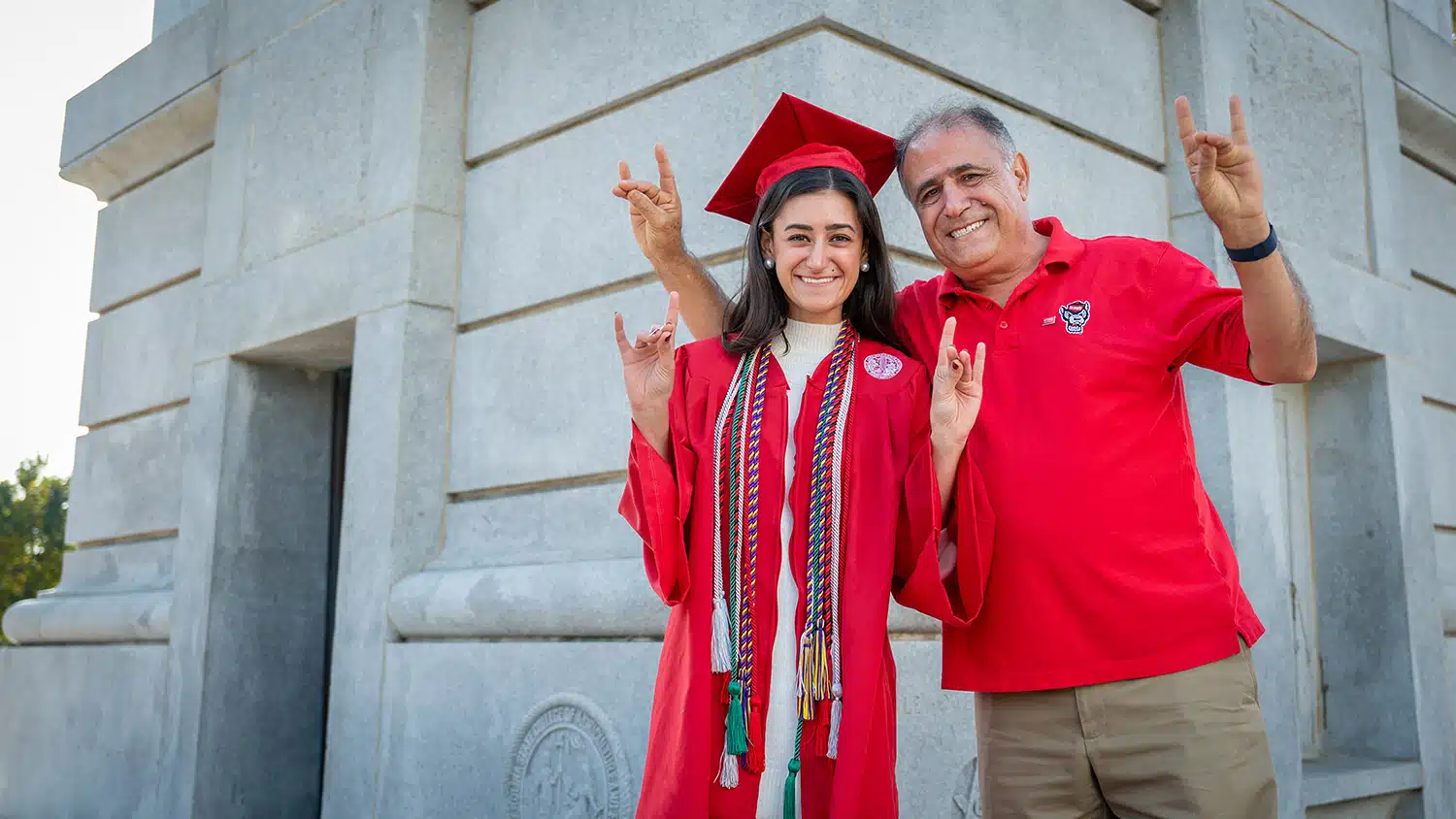Giving Back to Support Mental Wellness
Mary Chamblee (‘17) has witnessed the impact of mental health services as both a student and employee at NC State.

Please be advised that this story contains mentions of mental health struggles and suicide. Continue at your own discretion. If you need help, please visit the NC State wellness resources page. To speak with a crisis counselor, call 919.515.2423 or the National Suicide Hotline at 1.800.273.8255.
As first a student at NC State and now an employee with NC State Prevention Services, Mary Chamblee (‘17) has a unique perspective when it comes to the importance of mental health services at the university.
It’s a topic she’s passionate about and part of the reason she’s made gifts to support NC State’s Counseling and Prevention Services Enhancement Fund.
“I think people don’t realize how much mental health outreach efforts can really be funded by donations,” she said.
Chamblee herself benefitted from services at NC State’s Counseling Center when she was a student.
During her sophomore year, she lost a dear friend attending another university.
“It rattled me,” Chamblee recalled. “Especially when you’re in that stage of life when everything feels very transitional and things rarely feel constant – it blew up my whole world.”
Especially when you’re in that stage of life when everything feels very transitional and things rarely feel constant – it blew up my whole world.
Following that loss, Chamblee went to the Counseling Center. She was grieving the loss, but in some ways, the decision to go was also preventative.
“I knew it hadn’t fully hit me yet,” Chamblee said. “I wanted to have some tools for down the road.”
She took part in individual therapy for a while and then joined a grief group. At the time, mental health wasn’t as widely discussed as it is today. Chamblee learned through her experiences that it was something she wanted to speak up about, ultimately serving as a Mental Health Ambassador during her senior year. In that role, she served as a peer educator on mental health topics to other students at NC State.

Fast forward to today and Chamblee has come full circle. She joined the NC State Prevention Services team in 2020, and manages all digital and print content for the Counseling Center and Prevention Services.
Seeing the impact of the Counseling Center and Prevention Services as both a student and a staff member makes Chamblee proud to support the Counseling and Prevention Services Enhancement Fund.
Gifts, big and small, make an impact. Recently a donor made a gift to provide every student with a subscription to Headspace, a meditation and well-being app, which is something the Counseling Center couldn’t have afforded on its own, Chamblee said. She knows it will impact students’ lives in a positive way.
But gifts don’t have to be large to make a difference.
“I think smaller gifts are equally important since these gifts add up and allow the Counseling Center and Prevention Services to address their greatest financial needs,” Chamblee said.
These gifts add up and allow the Counseling Center and Prevention Services to address their greatest financial needs.
Demand for outreach and for mental health resources continues to grow – the past few years have been especially tough between the pandemic and the challenges the campus has faced regarding student suicide. Donations help fund programs and services to meet those needs, she said.
From the time she was a student up to the present day, Chamblee has witnessed the increased focus on the importance of mental health.
As a student, she first became involved with an on-campus event called “You Are Not Alone” at NC State. The event was part of a larger series of events across several North Carolina campuses and served as a place to hear from experts on mental health as well as provide a place to discuss mental wellness and the services available on campus for students.
She became more involved with mental health outreach her junior year and then became a Mental Health Ambassador her senior year. The Association of Student Governments began talking more about addressing student mental health during that time, and new programs and initiatives began to gain traction, she said.
As an ambassador, Chamblee would visit classes to present on topics like stress management or the importance of getting enough sleep. She also worked to make students aware of the mental health resources available on campus.
“Some of the resources might feel obvious once you’re in it,” Chamblee said. “But I think if you’ve never heard this information before, it can be kind of ground-breaking.”
She was awarded the NC State Alumni Association’s 2017 Mathews Medal in recognition of her work as a student leader. That award, administered by the Alumni Association Student Ambassador Program, recognizes seniors who have made significant contributions to the university.
Chamblee went on to work outside the university following graduation but applied for a communications role with Counseling and Prevention Services just a few short years later.
Since then, she’s seen the conversation around mental health continue to evolve. The pandemic began a collective conversation around mental health, she said.
Her role has changed as the mental health conversation has evolved. She coordinates more now with others on campus such as those in health, housing, and recreation, to present a collective wellness and wellbeing message. She’s even helped to start a Wolfpack Wellness newsletter that goes out to all NC State students.
Through it all, the energy on campus and the impact of her work keep Chamblee motivated. She’s able to see students connect with the counseling services and resources about which she educates and promotes.
“To know that, maybe 1,000 students learned about a new resource; that student interaction component is really important,” she said.
Chamblee’s own journey may encourage others to think about how they can give with their time or through financial support. How they give may change as their circumstances do, she said.
“The beauty of it, in time or money, is it doesn’t have to be resource-draining for you in order to give,” she said.
Perhaps it’s an hour of time this year volunteering and a financial gift next year.
“Take note of what’s on your plate and what you have available, and offer up whatever resources you can,” Chamblee said.
The Counseling Center is grateful for its operational funding provided through student fees and the state, however the Counseling and Prevention Services Enhancement Fund provides an additional critical and flexible source of funding. Ultimately, the Enhancement Fund enables increased counseling access for students, boosts professional development for staff and provides additional resources for prevention education.
This post was originally published in DASA.
- Categories:


